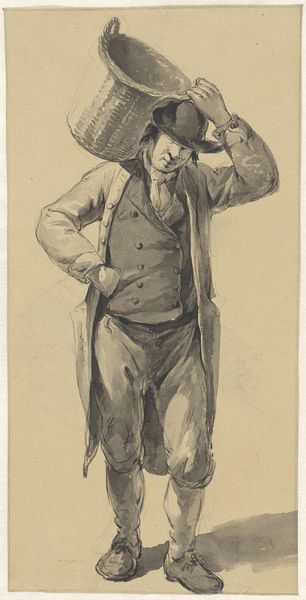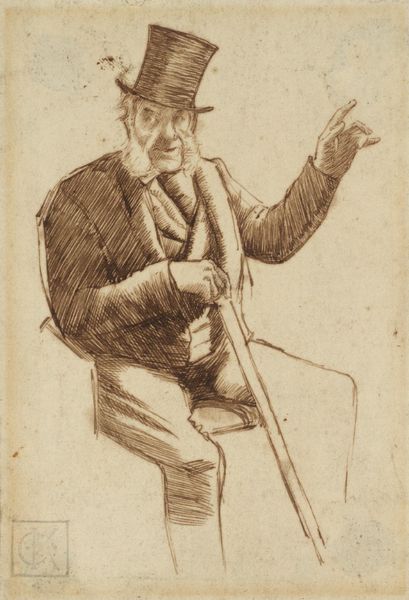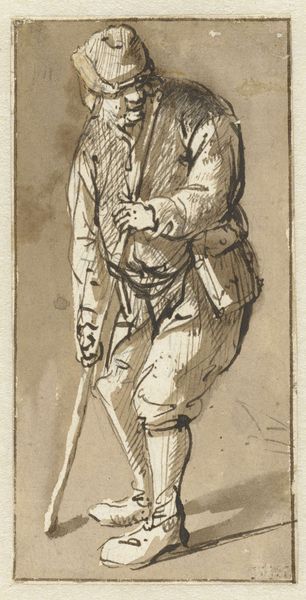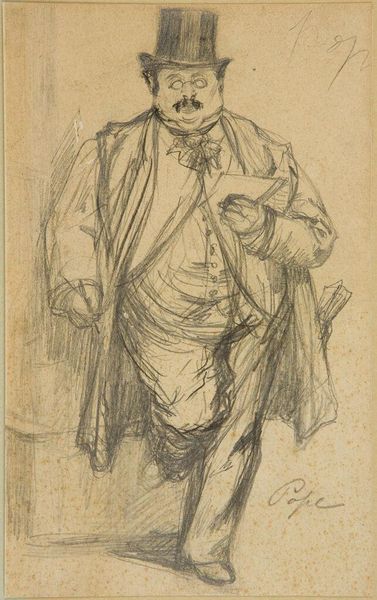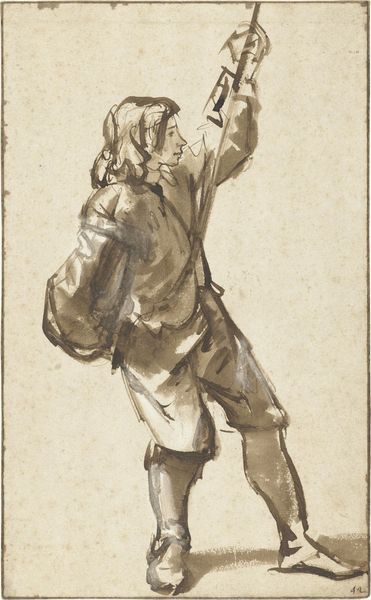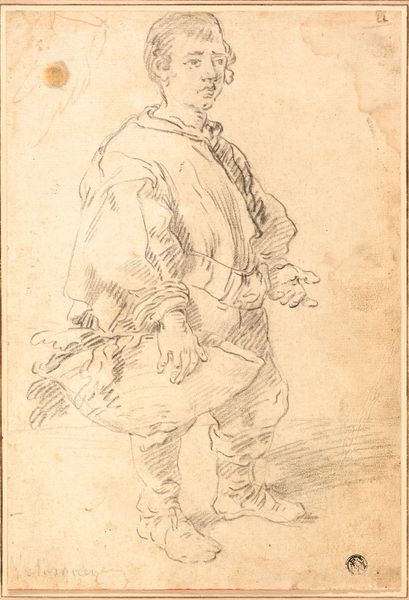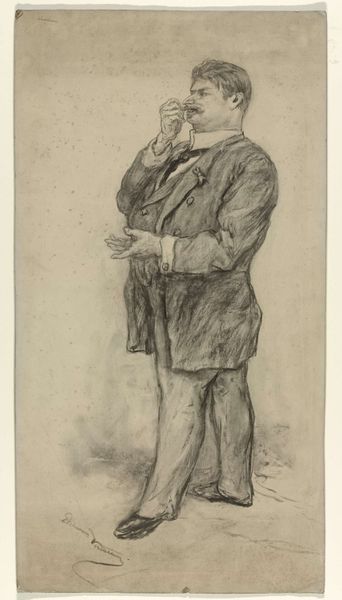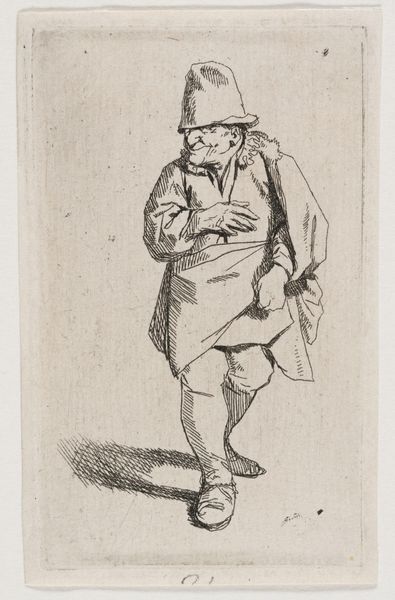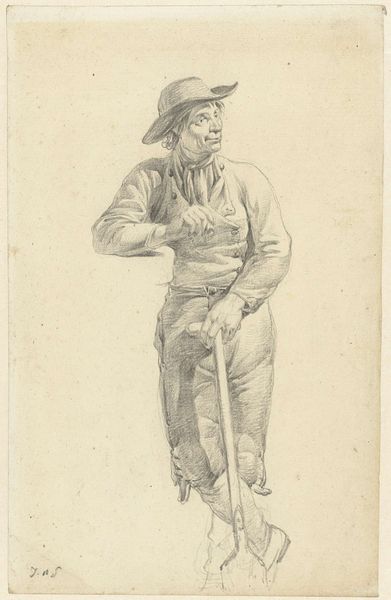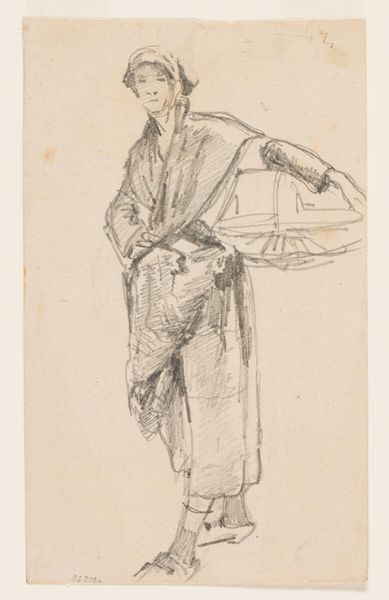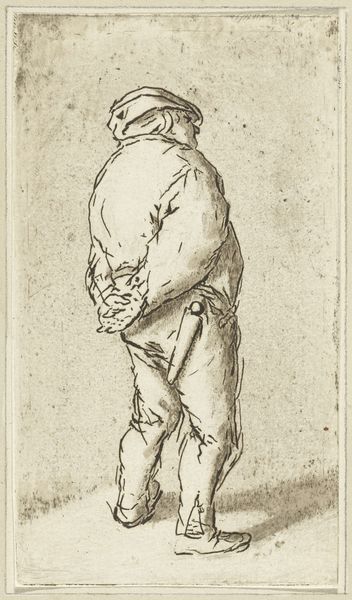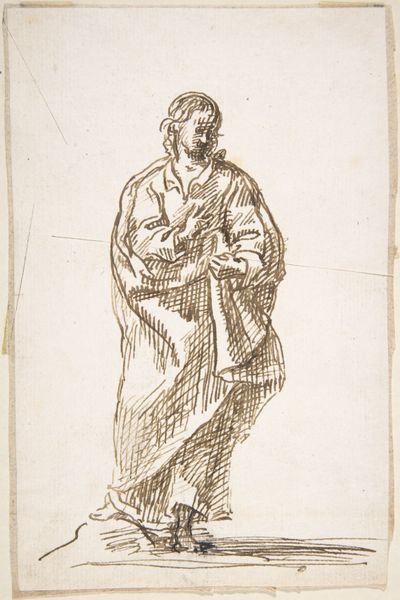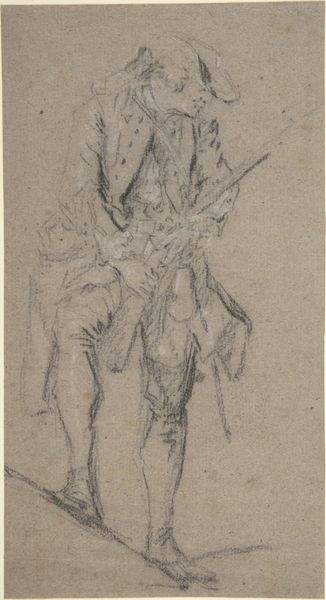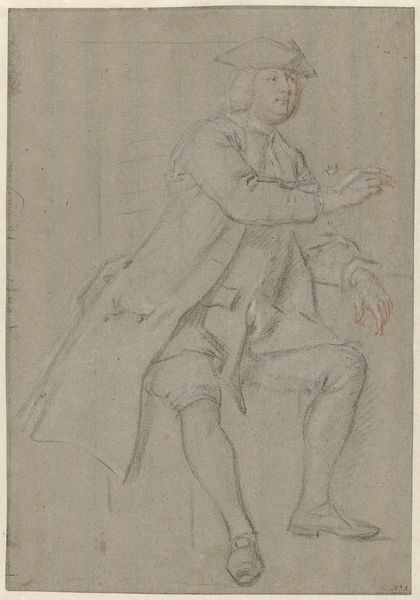
drawing, ink
#
portrait
#
drawing
#
figuration
#
ink
#
romanticism
#
portrait drawing
#
watercolour illustration
Dimensions: height 286 mm, width 141 mm
Copyright: Rijks Museum: Open Domain
Curator: This ink drawing from the early 19th century is titled "Zittende man met muts naar rechts wijzend," or "Seated Man with Cap Pointing to the Right," attributed to Johannes Christiaan Schotel. What are your first impressions? Editor: The muted sepia tones give it an immediate sense of antiquity and perhaps…resignation? He is clearly making a point, but there is also the somewhat slumped posture that could indicate an exhaustion or dissatisfaction. Curator: It's a curious piece, certainly. The hat immediately marks him. Think about head coverings throughout history; what do they denote? Social status, certainly, and often occupation or membership in a particular guild or organization. Editor: And that rather forceful pointing gesture, what's the nature of that? Command? Suggestion? Perhaps the most interesting compositional element here is that very pointed finger that guides our eyes to an indeterminate, yet significant space beyond the image itself. It speaks to potential, almost theatrical. Curator: Consider also the implied narrative—he's directing our gaze, so who is he and who are we, as the viewer? Is this an authority figure, a sage offering guidance? Perhaps an admonition. Schotel leaves it ambiguous, creating tension between the man's assertive gesture and his somewhat downcast expression. Editor: Indeed. It raises questions of agency and the role of the viewer. Is Schotel inviting us to partake in some mission? Or, through the somber coloration, inviting reflection rather than action. Curator: Precisely. This ambiguity highlights a fascinating paradox—a moment of assumed authority and direction imbued with a tangible undercurrent of human uncertainty. It is an arresting depiction of that period and speaks to concerns even today. Editor: Looking again at how Schotel handled line and shading, you see areas with very fine details contrasted against expanses that feel almost unfinished. I leave here thinking about where that open space points toward in me, as well.
Comments
No comments
Be the first to comment and join the conversation on the ultimate creative platform.
